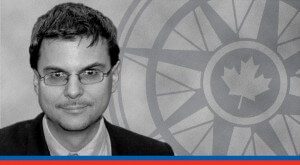 Canada’s new security intelligence oversight committee will realize its full potential if supported by a secretariat of officials experienced in the field of security and intelligence, write Christian Leuprecht and Hayley McNorton.
Canada’s new security intelligence oversight committee will realize its full potential if supported by a secretariat of officials experienced in the field of security and intelligence, write Christian Leuprecht and Hayley McNorton.
By Christian Leuprecht and Hayley McNorton, Nov. 13, 2017
Last week, the Prime Minister Justin Trudeau announced the members of the new National Security and Intelligence Committee of Parliamentarians (NSICOP), which is mandated with reviewing the legislative, regulatory, policy, administrative and financial framework of Canada’s intelligence and security agencies.
In response to a rapidly changing threat environment, security and intelligence means and ends have expanded and evolved significantly in recent years, but governments had not adapted review, oversight, and accountability apace.
The NSICOP is part of the current government’s objective to strike a better balance in response to demands by Canadians for greater reassurance that the federal government’s security and intelligence operations and agencies are compliant, efficient, and effective.
Security and intelligence means and ends have expanded and evolved significantly in recent years.
The appointed members bring a diversity of experience to NSICOP, ranging from expertise in environmental and public law to health and social policy; but only three have experience in security or intelligence: Sen. Vern White was an Assistant Commissioner with the RCMP, among other policing roles, Sen. Frances Lankin was member of the Security Intelligence Review Committee (SIRC), which reviews the Canadian Security Intelligence Service (CSIS), and Murray Rankin was a law professor and special advocate with expertise in National Security.
Although intelligence and/or security experience is not required, arguably that skill set and experience would improve the NSICOP’s ability to ensure that Canadian intelligence and security agencies are complying with the law and their mandates. Members will need to know what questions to ask the agencies, and avoid being confounded with answers that require an understanding of the minutiae of Canada’s S & I community.
The government has yet to name the executive director or hire the staff of the secretariat, but considering the relative inexperience in security and intelligence among the NSICOP’s membership and relatively short tenure of Canadian MPs, the committee stands to benefit from a secretariat with experience in the intelligence tradecraft that can give them the best support and advice.
The secretariat should consist of a small cadre of trusted, seasoned professionals with experience in intelligence tradecraft, and appropriate internal security, akin to the kind already run for employees across Canada’s security and intelligence community.
A small secretariat knowledgeable in the intelligence tradecraft can capitalize on its experience and expertise to advise the NSICOP proactively on questions to ask and information to request from intelligence and security agencies. The secretariat would also do well to research the effectiveness of the policies, regulations, legislation, and administrative procedures that govern Canada’s security and intelligence community.
A small secretariat knowledgeable in the intelligence tradecraft can capitalize on its experience and expertise to advise the NSICOP proactively.
The informed advice an experienced secretariat would not only assist the NSICOP in fulfilling its mandate, but also aid the NSICOP when co-operating with other intelligence review bodies, including the proposed National Security and Intelligence Review Agency (NSIRA).
If Bill C-59: An Act Respecting Security Matters passes, NSIRA will provide expert review of national security or intelligence activities carried out by a department or agency, and will receive and investigate complaints. Due to the broad mandates of both NSICOP and NSIRA, there is a risk for overlap and duplication. A secretariat with experience in the intelligence tradecraft could work with NSIRA’s staff to deconflict the focus and strategies of each body, and establish how they will co-ordinate on issues of mutual interest, and perhaps, in sharing information.
The committee is poised to be a success: a diverse, dedicated committee of parliamentarians can help increase public understanding and trust in the agencies that keep Canadians safe. However, NSICOP’s ability to make a positive contribution to Canadian intelligence accountability will be determined by the resources and support it is given: quality, not quantity. Supported by a small secretariat with security and intelligence experience and expertise, the NSICOP would be positioned to fulfill its ultimate objective: to reassure Canadians that their intelligence and security agencies are compliant and accountable.
Christian Leuprecht is professor at the Royal Military College of Canada and Queen’s University, and Munk Senior Fellow at the Macdonald-Laurier Institute. Hayley McNorton is an independent scholar.




